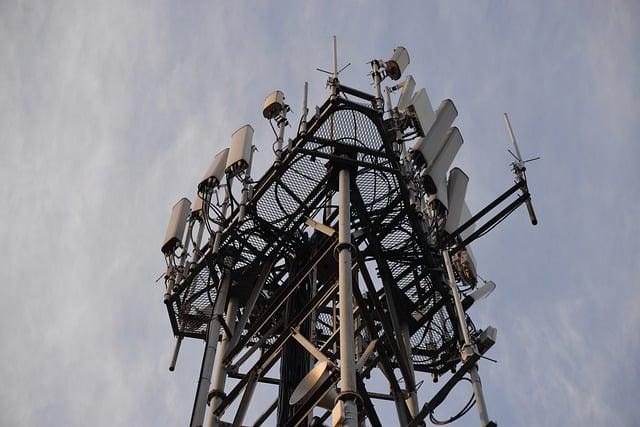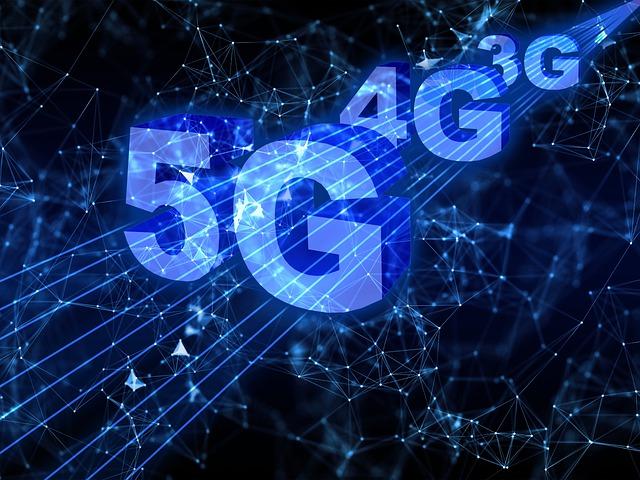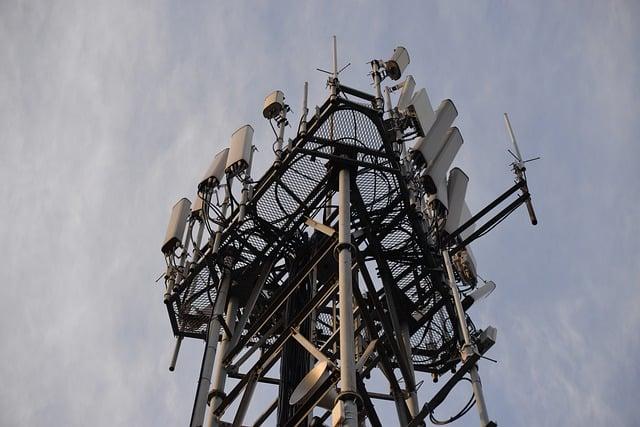Index
- Introduction
- 5G Rollouts Expand
- Technological Advancements
- Broader Coverage
- Benefits of 5G Expansion
- Privacy Concerns
- Conclusion
- FAQs
- References
Introduction
5G technology is revolutionizing the way we communicate and connect to the digital world. As 5G rollouts expand globally, it brings with it a host of new possibilities and challenges. This article explores the impact of the widespread deployment of 5G networks on various aspects of our lives.
5G Rollouts Expand
The deployment of 5G networks has been rapidly expanding across the globe, ushering in a new era of connectivity. Countries and telecom companies are investing heavily in upgrading their infrastructure to support the faster speeds and lower latency that 5G offers. With more areas gaining access to 5G coverage, users can enjoy seamless connectivity for all their devices.

(Image: Pixabay/@hello_world_2022)
Furthermore, the increased bandwidth of 5G networks opens up possibilities for innovative technologies such as the Internet of Things (IoT), augmented reality (AR), and virtual reality (VR). These advancements have the potential to transform industries ranging from healthcare to transportation, offering new levels of efficiency and convenience.
As 5G rollouts continue to expand, more consumers will be able to experience the benefits of high-speed internet on their smartphones, laptops, and other devices. This widespread adoption of 5G technology is driving a digital transformation that will shape the future of communication and connectivity.
Technological Advancements
The advancement to 5G technology represents a significant leap forward in terms of network capabilities. Compared to its predecessor, 4G LTE, 5G offers exponentially faster speeds and lower latency, enabling real-time communication and data transfer. These improvements pave the way for cutting-edge applications and services that rely on ultra-fast connectivity.

(Image: Pixabay/@geralt)
Additionally, the implementation of technologies such as beamforming and massive MIMO (Multiple Input, Multiple Output) in 5G networks enhances signal quality and coverage, ensuring a more reliable and robust connection for users. The move towards standalone 5G networks further optimizes performance and scalability, supporting a diverse range of devices and applications.
Overall, the technological advancements brought about by 5G networks not only elevate user experiences but also drive innovation across industries, fostering the development of new solutions and digital ecosystems.
Broader Coverage
One of the key advantages of 5G rollouts is the expansion of network coverage to previously underserved or remote areas. By leveraging a combination of high-frequency millimeter wave spectrum and mid-band frequencies, telecom operators can deliver 5G connectivity to a wider population base.

(Image: Pixabay/@ADMC)
This increased coverage opens up opportunities for rural communities, IoT applications in agriculture, and improved emergency services through enhanced communication networks. Bridging the digital divide by providing ubiquitous 5G coverage is a crucial step towards achieving global connectivity and digital inclusion.
Moreover, the deployment of small cells and network densification strategies further enhances coverage and capacity in urban areas, ensuring seamless connectivity in densely populated regions. The expansion of 5G coverage not only benefits individual users but also supports the growth of smart cities and sustainable infrastructure.
Benefits of 5G Expansion
The expansion of 5G networks brings a multitude of benefits to individuals, businesses, and society as a whole. From faster download speeds and reduced latency for immersive experiences to improved network reliability and security, 5G offers a transformative upgrade to our digital connectivity.

(Image: Pixabay/@hello_world_2022)
Businesses can harness the power of 5G to streamline operations, deploy IoT solutions for data-driven insights, and enable remote work capabilities with seamless connectivity. Consumers can enjoy enhanced multimedia experiences, cloud gaming, and augmented reality applications that leverage the speed and responsiveness of 5G networks.
Furthermore, the integration of 5G technology in critical infrastructure, such as healthcare, transportation, and public safety, enhances efficiency, improves services, and enables faster emergency response times. The broad-ranging benefits of 5G expansion underscore its significance in driving innovation and progress across diverse sectors.
Privacy Concerns
With the proliferation of connected devices and the vast amount of data transmitted over 5G networks, concerns around privacy and security have become increasingly prevalent. The sheer volume of sensitive information transferred over high-speed networks raises questions about data protection, encryption, and cybersecurity vulnerabilities.

(Image: Pixabay/@geralt)
Ensuring the privacy of user data, establishing robust cybersecurity measures, and enforcing regulations to safeguard personal information are essential steps in addressing privacy concerns in the era of 5G. Balancing the benefits of enhanced connectivity with the need for data protection is a critical consideration for policymakers, businesses, and consumers alike.
Conclusion
The widespread expansion of 5G networks presents a myriad of opportunities for innovation, connectivity, and progress. As countries invest in upgrading their infrastructure and telecom companies roll out advanced network technologies, the promise of a hyper-connected future becomes increasingly tangible. While the benefits of 5G expansion are vast, addressing challenges related to privacy, security, and regulatory frameworks is crucial to realizing the full potential of this transformative technology.
FAQs
How does 5G technology differ from previous generations?
5G technology offers significantly faster speeds, lower latency, and higher network capacity compared to 4G LTE and earlier generations. These improvements enable real-time communication, support massive Internet of Things deployments, and enhance overall user experiences.
What impact will 5G expansion have on industry sectors?
The expansion of 5G networks will revolutionize industries such as healthcare, transportation, manufacturing, and entertainment by enabling innovative applications, improving operational efficiency, and enhancing connectivity for IoT devices.
Are there any health concerns associated with 5G technology?
While extensive research has been conducted on the health effects of radiofrequency radiation, including that emitted by 5G networks, regulatory bodies and international health organizations have established guidelines to ensure the safety of wireless technologies.

